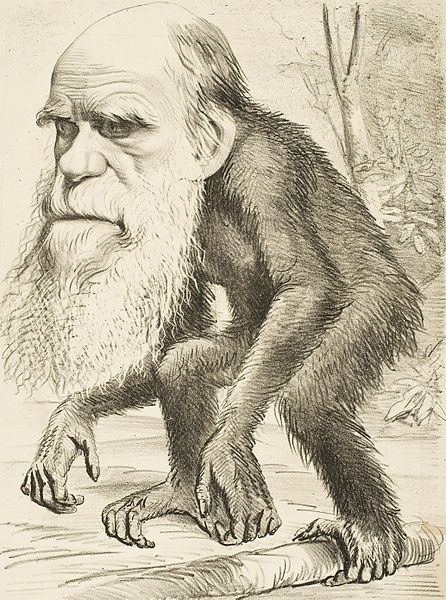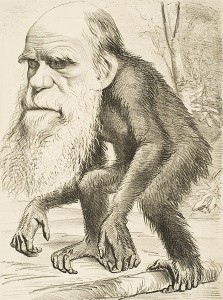In the late 90s and early 2000s science fiction fans such as myself had a bit of a hard time. As happy as I was when the last few years brought, amongst others, the amazingly crafted science fiction spectacles Battlestar Galactica (2004) and the long anticipated Alien prequel Prometheus (2012), the more disappointed I became when I realised that both events based their storylines heavily on creationism.
Now one might argue that these are works of art and therefore subject to artistic freedom, and generally I do agree. But then again, that wouldn’t be much of a blog post. So let me describe why this is not only such a disappointment, but also cause for a bit of a tummy ache.
First of all, science fiction is not an art form as such but rather a movement within different artistic disciplines. Lots of disciplines use elements from science fiction. It appears in classic literature such as the works of Jules Verne, and the myriad of other authors following his footsteps, and on the silver screen with the most prominent works being Star Trek and Star Wars. More recently (and not surprisingly) science fiction is prominent in computer games and even in music, especially within electronic music with the best example surely being the robot outfits of French house legends, Daft Punk.
Within all these different art forms there must be a common ground, something that can give such different expressions as sound, word or interaction a common name. So what unites all these art forms under the science fiction umbrella? The most straightforward term that we might could come up with is ‘future’, but that would be too simple. Remember that Star Wars took place ‘A long time ago, in a galaxy far away’, but no one would refute that it is one of the defining works of science fiction. I think that the most important element in science fiction is exploration: take the now, look at our social, scientific and technological achievements and make a step forward. Imagine what could happen, imagine a Utopia, a Dystopia, or a world not so different from our own. It can take place on different worlds or on our own home planet. The defining element is that it is a fictional continuation of our current knowledge, exploring whatever implications the creator of the work wants to explore.
And there lies my problem with Creationism. In order to explore the future consequences of our current state-of-art, we must get the state-of-art right. Among the science fiction fans I know it is usually accepted that the general premise in science fiction is theoretically possible, given the knowledge at the time. Of course not everything has to be realistic: the Force in Star Wars adds a mystical element, and that is completely acceptable since it is defined as mystical within the original movies. However, when Prometheus takes an intelligent design approach, it sets an anti-science premise, and builds a future from it, giving the impression that intelligent design is a scientifically valid theory. Battlestar Galactica goes even one step further, bringing God directly into play as the creator. While one could consider this as an example of the previously mentioned mystical element, albeit in a somewhat convoluted way, the story of the show managed to completely mix up mysticism and hard science in a way that is nearly impossible to disentangle, especially for the viewers who do not have a background in science. (It is beyond this blog to summarise the story of a four seasons show, so for the readers interested in more detail I recommend the following essay by Brad Templeton.)
Using creationism or intelligent design as a creator of works of science fiction has two consequences: it disappoints those fans, such as myself, that have a background in science and it gives those fans who do not have a scientific background a false impression of realism associated with creationism, spreading anti-science further.
Of course this is a personal opinion, but I stand to it when I say that creating a work of science fiction should always take the science on which it is based seriously, whether that be promoting a technological future or warning about its perils.
Author: Jesko Zimmerman, zimmerjr[at]tcd.ie
Image Source: Wikicommons










